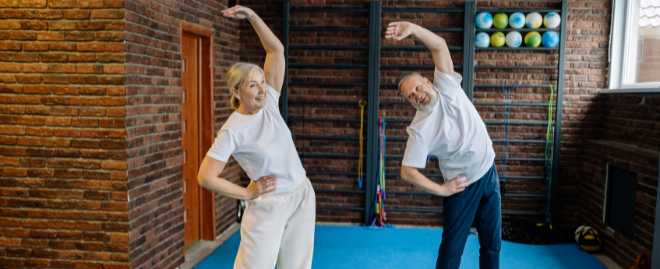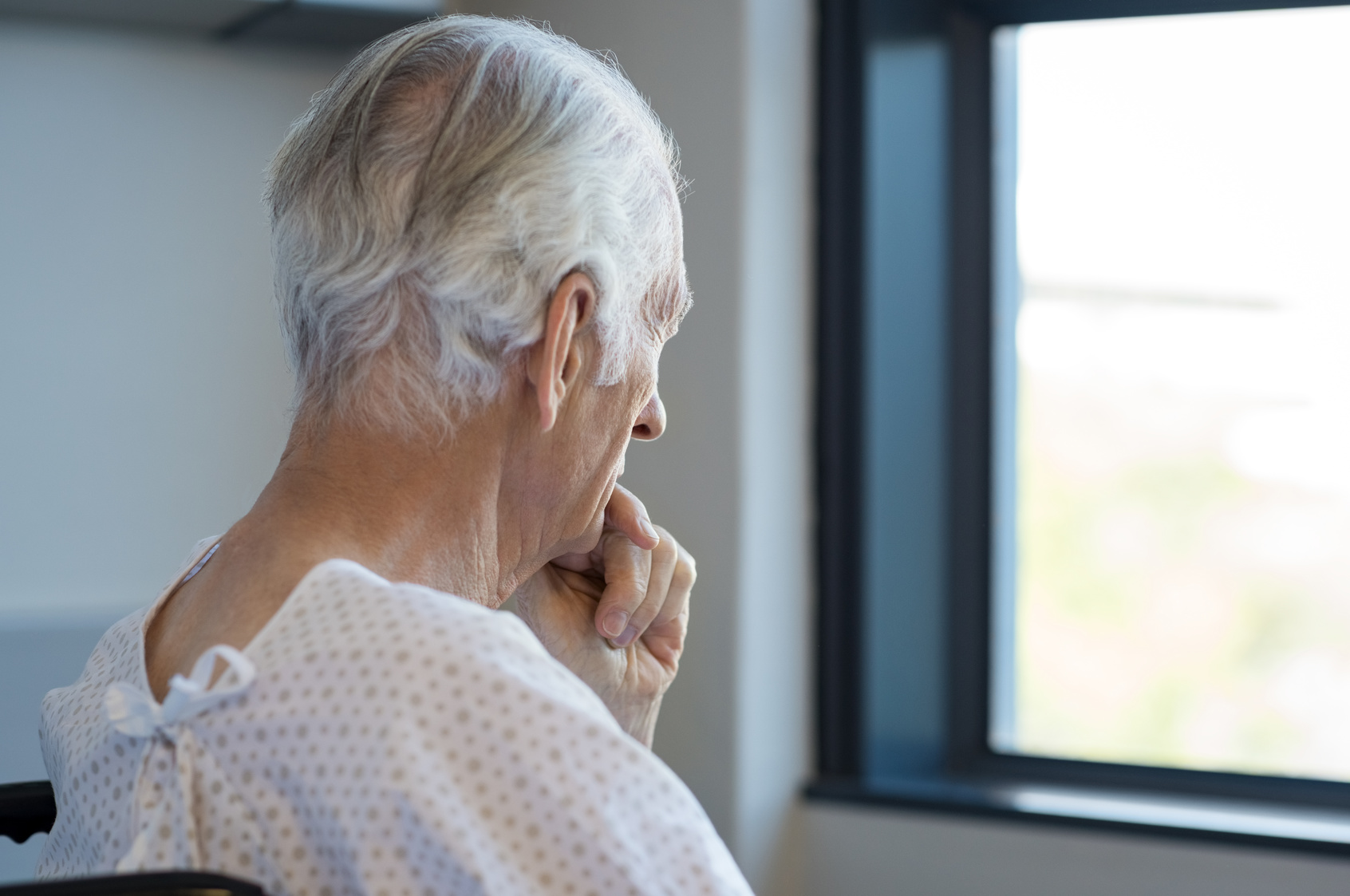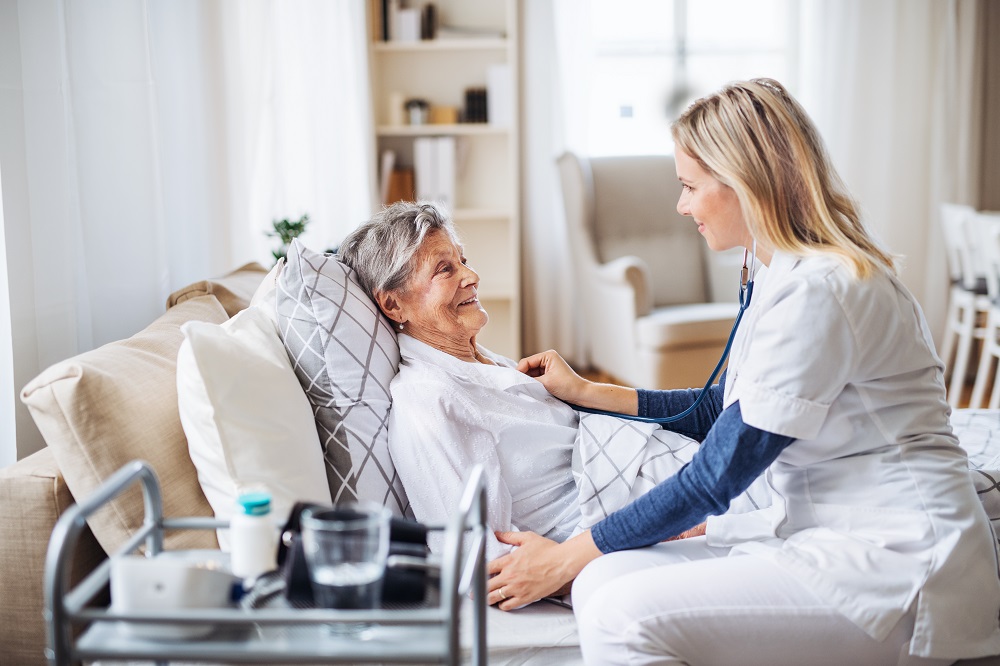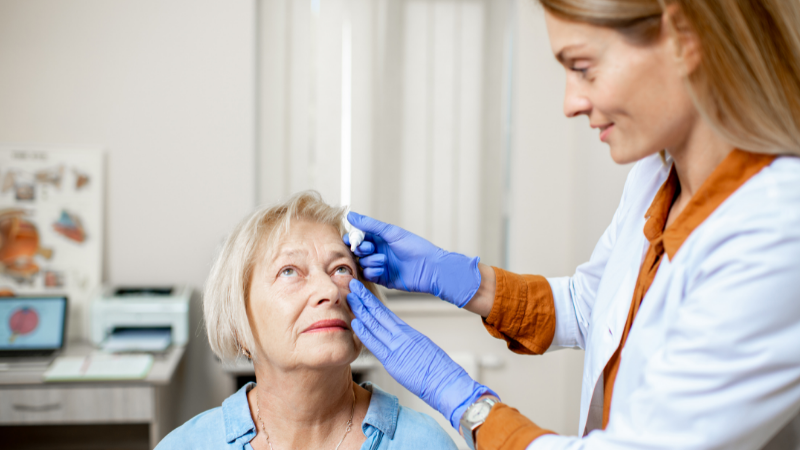There are many seniors who must have surgery or a big medical procedure done at some point during their lifetime. After a surgery, a senior may take a long time to heal and recover. It can be frustrating for them to need help from loved ones when it comes to basic daily tasks, so it is important for friends and family to provide them with lots of emotional support and any additional care and assistance they may need around the home.
Family caregivers who usually take care of the senior may need to provide even more support, such as emotional and physical post-operative support. Healing after a surgery is tough on the senior, but this may be also tough for the family caregiver as they will experience additional stress and strain.

Prepare for Post-Surgery Exercises for the Elderly:
The following are some things family caregivers and those taking care of seniors during post-operative care can do to help:
Get their home ready for post operative care:
It is important to understand what the senior’s needs are so they can heal and recover at home post-surgery. Friends, family members, and caregivers will need to speak to their doctor and make sure to have everything the senior will need in their space. Whether it is medications, a wheelchair or a walker, a bathing chair, or other items, these should be ordered ahead of time and be ready once the senior gets home. Family members and caregivers can do the grocery shopping and light cleaning to get the home ready for their arrival. This will help the senior feel more comfortable and welcome when they get home.
Watch their mental and physical state:
Some seniors experience medication side effects, mood swings, changes in sleeping patterns, weakness in the affected area, and even complications with the wound or infections. The senior may also not want to follow instructions and they may feel confused or sad during recovery. It is crucial to watch for any changes in their emotional or physical state and work with other family members and their doctor to help them overcome it.
Provide patience and support:
After a surgery, the senior may experience pain, weakness, sadness etc. This is the time for family members and caregivers to provide support, listen to their needs, and help with housework and grooming. It is also important to pay attention, provide support and be open. This may help them feel better and heal faster. Keep in mind that the recovery process for seniors is longer and having others pay attention to their concerns and thoughts will help them heal.

Caregivers provide patience and support to seniors after surgery
Help them exercise, go to doctor’s visits, and follow the doctor’s instructions:
Post-surgery care requires doctor visits, new medications, and sometimes even physical therapy. All of these can be frustrating and your loved one may need help. Whether it is scheduling the visits, finding time to help them exercise, or taking them to physical therapy, it is important for caregivers and family members to pay attention to the instructions given by the doctor, and help them schedule follow-up appointments. As a caregiver or a family member, it is your job to advocate for your loved one and help them in the best way possible.
Ask for help
Post-surgical care for a senior requires a lot of time and effort. Therefore, family members and friends should agree on which tasks they will take on to help the senior. Whether it is grocery shopping, grooming, or cleaning the house, it is important to ask for help from others when needed. Enlisting support of others will allow seniors to see different faces who can help with tasks. If a professional caregiver for post-surgical care is hired, they can help with daily activities and provide emotional and physical support. They can also take them to the doctor as needed and watch for any complications.
Read Choosing Exercise Clothes and Shoes for Seniors to thoroughly prepare your beloved elderly with the most comfortable outfit for their workout.
Post-surgery Exercises for the Elderly
When a senior has surgery, it can affect their ability to function by themselves and therefore, it is important for them to stay active. The following exercises can help seniors after surgery. However, make sure that you consult their doctor before starting any new exercise regimens after a surgery.
Shoulder Rolls
Usually after surgery, seniors must stay in bed, and it can become more difficult for them to move. An easy exercise for them to do is roll their shoulders forwards for 5 to 10 repetitions and then roll them backwards doing the same number of repetitions. This will help ease tension in the shoulders and chest.
Ankle Pumps
This is a great exercise for seniors in the first couple of days post-surgery. All they would need to do is extend their foot up and down. This exercise helps to prevent blood clots from forming.
Doing Stretches
Stretching relieves any soreness leftover after surgery. Seniors can even do this exercise in bed. While lying down, pulling their knees to their chest and can help stretch their back. The can also stretch their back from a standing position by taking a deep breath and bending over to exhale.

Best Exercises for Seniors to Do After Surgery: Doing Stretches
Light Walking
Recovering from a surgery is not easy for seniors, but light walking can help. It will help keep their heart pumping and their body will release endorphins which can boost their mood.
Strength Training
Strength training can help seniors build muscle strength. This can include lifting weights and using exercise bands. This type of training will also help keep their bones strong and healthy and may prevent the need for future surgeries.
Are you or your loved one in need of after surgery care at home? Assisting Hands Home Care offers post operative care in Matteson, Bourbonnais, Frankfort, Mokena, IL, and the surrounding areas. We know returning home after a surgery can be difficult and that is why our highly trained staff is here to help. Our senior care services are top notch as our caregivers will help ensure that your loved ones follow their discharge instructions and get plenty of rest so they can heal and avoid setbacks that can put them back in the hospital. Call (708) 880-7711 today to schedule quality home care.















